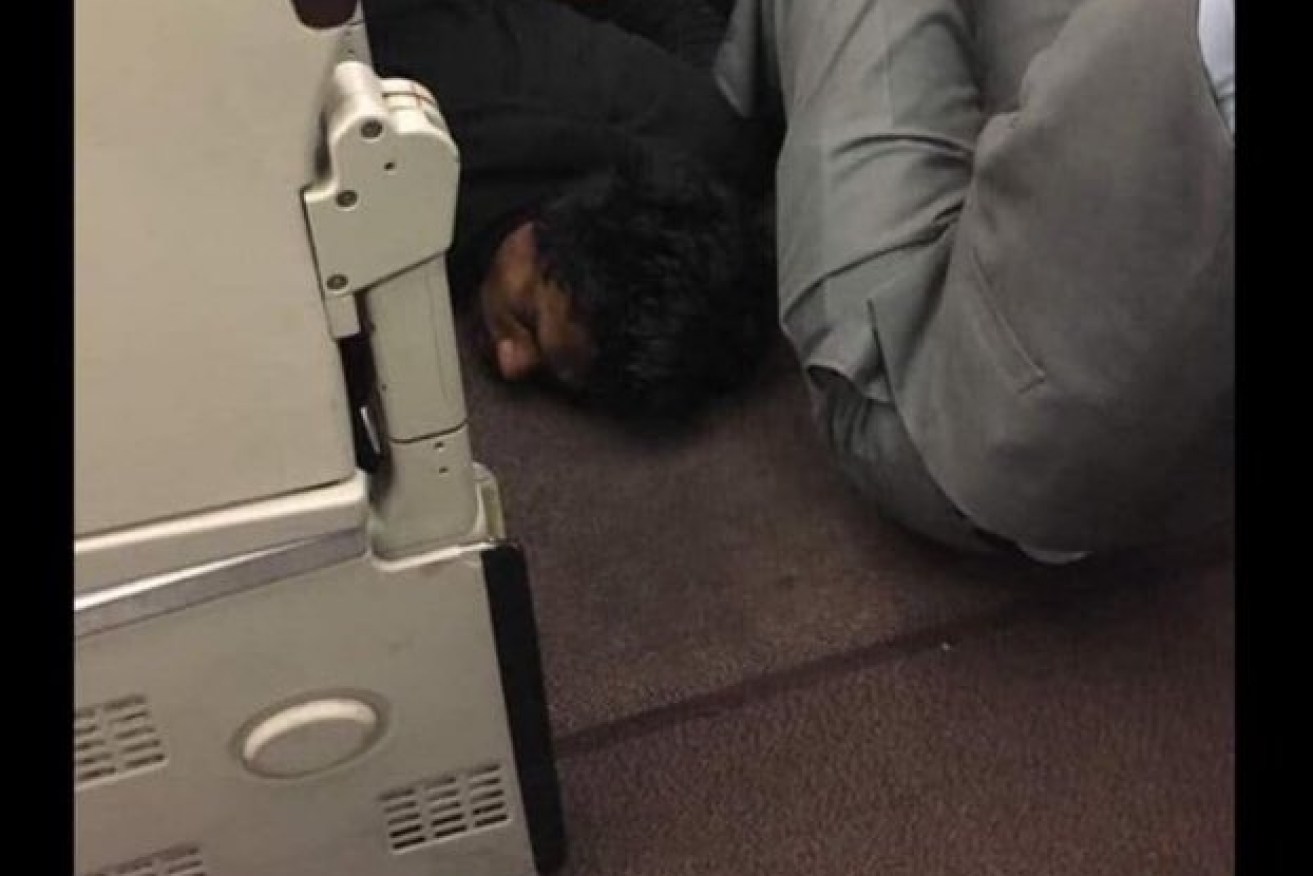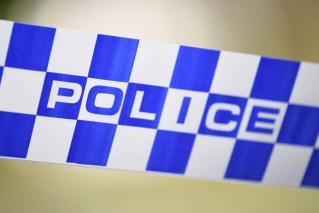What to do if there’s trouble on your flight

The man who terrified the Malaysian Airlines was subdued by fellow passengers. Photo: Twitter
What should you do if an incident happens on your plane?
Police commended the crew and passengers on Malaysia Airlines flight MH128 who overpowered a man who was threatening to blow up the plane during a flight from Melbourne to Kuala Lumpur.
While police are not treating the incident as terrorism, and the item on board was not a bomb, it’s again raised the moral conundrum many of us ask ourselves each time an event happens in the air: Should you step in? Or stay in your seat?
Key points
- Your flight crew are trained for emergencies
- They will have scanned passengers for any potential threats
- They will also have an idea of who they want to help in an emergency
Your crew will have been trained for this
Cabin safety consultant Susan Rice said while this latest incident wasn’t related to terror, all attempts to breach the flight deck are treated seriously by both cabin crew and authorities.
“Anytime that somebody tries to make their way to the flight deck of an aeroplane and is prepared to use force, then that threat or intimidation for cabin crew and for pilots, that’s an attempted hijacking,” Ms Rice said.
“And we’ve had a number of those in Australia.”
Air crews are trained in basic forms of self-defence and in the management of incidents in the sky.
Will they ask you for help?
They might.
But they will rely on other crew members to get the situation under control first.
“In the first instance they would be calling out to their colleagues but the passengers couldn’t help but hear it,” Ms Rice said.
“And that’s what’s changed in passenger behaviour since September 11, is that passengers are more inclined now to step up.
“I think the only thing we can put it down to is the events of September 11, so the cabin crew who are on large aircrafts, initially they would seek to have their colleagues be aware that there was something wrong.
“And when passengers do step up, as they invariably will, part of their training is then how to instruct the passengers to do what they want them to do.”
What are cabin crew looking for in terms of people who might help?
It’s pretty simple actually, and Ms Rice admits, a bit of a stereotype.
And flight staff will be on the look-out both during boarding and throughout the flight demonstration.
“They would look for, to me it’s a bit of an old-fashioned term, the big burly type, or someone who looks like they may be defence personnel or police,” she said.
“A bloke with a short [hair] cut, short, back and sides is generally a good prospect.
“That’s what they’d be looking for.”
She said one of her crew members keeping an eye out helped during a mid-air incident she experienced while working as a flight attendant.
“I’ve had it on an occasion where we had a situation on board and one of the girls down the back went straight for this guy that came on, she hadn’t even realised she’d done it,” she said.
“But she’d profiled this guy, that if anything went wrong she’d go to him and she did straight away.
“It turns out that he was Army [personnel] and very helpful.”
What are they looking for in people that might cause an issue?
Ms Rice said intuition played more and more into the training for cabin crew.
“It can be quite a subconscious thing that we do, but when you’ve been dealing with the travelling public for many years, and some people just have this … I call it a sixth-sense … you just get a vibe or a feeling and it may not be that someone is going to necessarily be a potential hijacker, it could just be that they are slightly disturbed or they could create a disturbance on board,” she said.
“We’re teaching crew now more to listen to that little voice inside them.
“… someone might come past through the door … and the hair goes up on the back of your neck and you think ‘Oh, what’s going on there?’
“For years we used to quiet that little voice down, and in my experience that little voice was right 99 per cent of the time.”
What should you do if cabin crew ask for help?
It’s ultimately up to you if whether you want to get involved in helping crew during an in-flight emergency situation.
But the first thing is check that crew actually want your help.
“As long as they can follow the directions of the crew,” Ms Rice said.
“Sometimes people might think they are being helpful, when they could actually be making a situation worse, if passengers can think about saying ‘I want to help you, tell me what to do’.
“That’s more along the lines of what we’d look for.”
She said it also comes down to the type of personality you have.
“Some people just will put their hand up,” she said.
“Someone might hurt themselves crossing the road and there’s always a certain type of person that will go to help them, and that’s the sort of person that steps up on an aeroplane as well.”
-ABC








